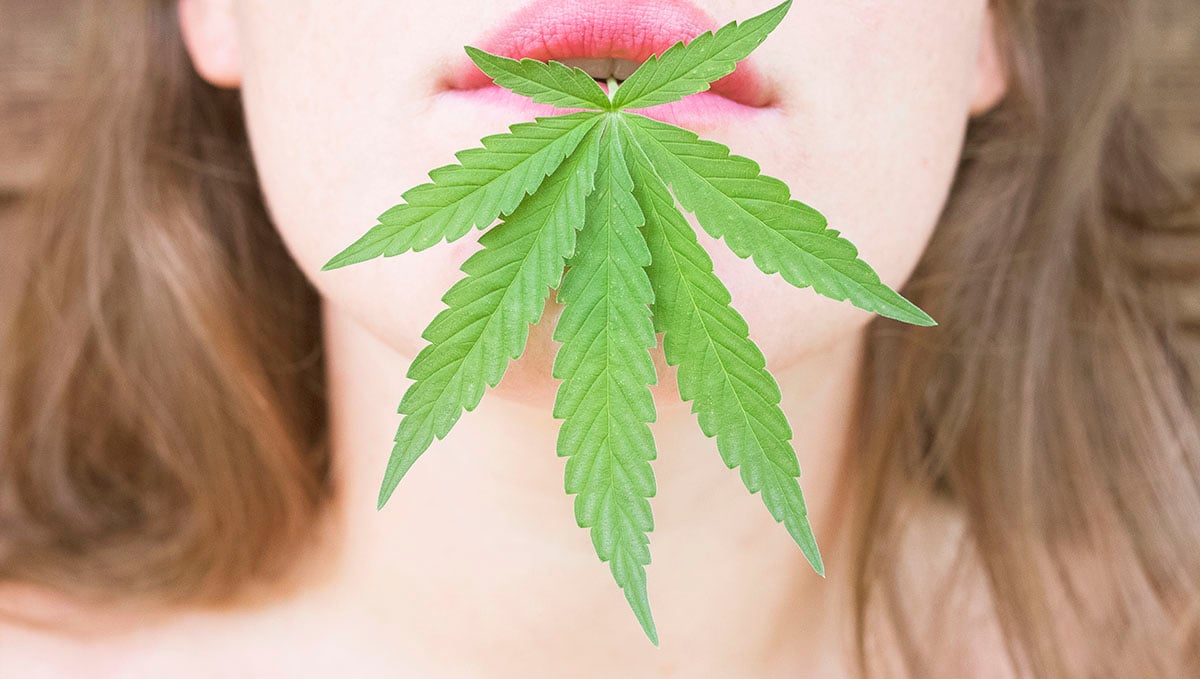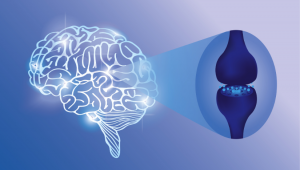Can Marijuana Help Treat Eating Disorders?

- 1. What are eating disorders?
- 1. a. Anorexia nervosa
- 1. b. Bulimia nervosa
- 1. c. Obesity
- 2. Cannabis for anorexia and bulimia
- 2. a. Cannabis for treating the side effects of eating disorders
- 3. Cannabis for obesity
- 4. Final thoughts
As the world makes way for the use of marijuana in the medical field, every day researchers find new ways and uses in which this magical plant can help with our daily struggles and issues.
Eating disorders, for example, are a big concern nowadays, in fact, more than 9% of the population worldwide is suffering from some eating disorder, according to ANAD, National Association of Anorexia Nervosa and Associated Disorders.1
And since E.D's are mental illnesses, there are no specific medications or effective methods for their treatment, patients must go through a couple of years of appointments with therapists and doctors who'll follow the case until they become capable enough of overcoming the disorder or at least cope with it in a way it doesn't disturb their life.

When a patient is struggling with an eating disorder, sometimes it can be difficult to get their appetite to open and get them to eat. But what if the munchies often produced after marijuana consumption were the perfect help to treat these patients. Let's find out how marijuana could aid in the treatment of some common eating disorders.
1. What Are Eating Disorders?
The most common eating disorders include anorexia nervosa, bulimia nervosa, and obesity. While all of these are mental illnesses, each of them presents its own symptoms and effects on every individual.
While some people might underestimate the gravity of such disorders, the fact is that the mortality rates related to these illnesses can be extremely concerning. For instance, 12.8% of anorexic patients die from it every year, making it the disorder with the highest mortality rate among other psychiatric diseases.
The problem resides in this underestimation of the disease, thinking that telling someone "just eat" or the opposite, "stop eating" will fix their problems forever. Just like telling a depressed person not to worry and "just be happy" won't ease their problem, eating disorders don't get fixed with some magic words either.
To overcome these disorders, active intervention needs to be done, and most of the times by external and professional help, since the diseased person can't see for themselves that they have a problem. Therefore, in order to be able to help someone who's dealing with eating disorders, it's necessary to know how to identify these disorders' symptoms.
However, it's important to understand that the person struggling with the disease may act irrationally and in a stubborn way when intervention takes place. This is because they'll likely feel in a defensive state when asked about such subjects. Don't give up, this is a common reaction but help is indeed necessary.
Anorexia Nervosa
Anorexia nervosa is an eating disorder in which a patient refuses to eat and resorts to self-starvation, in the first instance as a source to lose weight, and once it has already developed, as a result of the fear of getting fat.

The symptoms of anorexia nervosa can manifest in the emotions, physic, and behavior:
| Physical Symptoms | Emotional Symptoms | Behavioral Symptoms |
|---|---|---|
|
Extreme thinness and constipation. Hair loss and small hair growth on the body. Irregular periods or period absence. Dizziness, fainting, fatigue, and low blood pressure. Low body temperature; cold hands and feet. Bruising, brittle nails, pale dry skin, and dark under-eye circles. Insomnia. |
Irritability; depression; anxiety and guilt; hunger denial; poor self-esteem. |
Playing with food around the plate, cutting it into pieces, or other strange eating habits. Extreme physical activity. Food restrictions, calorie counting, over control, dieting, or laxatives intake. Self-isolation. Denial. |
Bulimia Nervosa
Bulimia is the eating disorder that combines some or all of the symptoms previously listed, with the addition of the following:
- Binge eating and vomiting after overeating;
- Compulsive behavior;
- Bad breath and dental cavities;
- And heartburn or inflamed esophagus.
When a person has bulimia nervosa, you'll likely notice toilet trips after every meal, followed by a minty breath and washed hands, these are all common signs that they're dealing with the eating disorder.
Obesity
Contrary to the eating disorders mentioned above, obesity is slightly easier to diagnose. A person is considered to be obese when their body mass index, a heigh-weight relation, exceeds the number 30, meaning there's an excess in body fat.
Pain in the back or joints are common signs that a person is overweight, as well as shortness of breath, excessive sweating, snoring, and fatigue. As well as in anorexia and bulimia nervosa, denial is another sign of obesity, patients will refuse to accept that they have a problem and may even deny medical help.

If you see a relative or friend presents some of these symptoms, it's important you try to interfere before the disease gets worse. Let's find out how cannabis can aid in the treatment of these disorders.
2. Cannabis For Anorexia and Bulimia
There is a common effect produced after marijuana consumption known as the 'munchies' which consists of a big boost in the appetite. Therefore it doesn't come as a surprise that scientists and doctors came to question if cannabis could be effective in the treatment of anorexia and bulimia.

The fact is that marijuana is indeed used to boost the appetite of those patients who are under treatment for cancer or HIV/AIDS, and whose appetite is reduced due to the treatments involved with their illness. But more research yet needs to be done to back the use of marijuana for eating disorders.
Nevertheless, since the cannabinoids present in weed bind with the receptors in the endocannabinoid system in the human body, which, among other duties, has a big influence on the appetite, marijuana could indeed be promising to treat anorexia and bulimia. 2 3
By producing the munchies, marijuana can help patients get rid of the controlling thoughts and fear of eating caused by the disorder, leading them to indulge in some food without the usual guilt. However, with bulimics, it's essential that they're also treating the purging behaviors in order for cannabis to be effective.
Anorexics tend to lose the ability to find joy in many activities, including eating, therefore, the weed munchies could help bring this back to normal. However, this isn't the only way cannabis can help with eating disorders.
Cannabis for Treating the Side Effects of Eating Disorders
Since one extremely common side effect of eating disorders is depression, some patients might end up needing to treat this illness as well. Marijuana has shown to boost the mood in many ways, by helping with relaxation, relieving stress and anxiety, which are common for eating disorder patients.
At the same time, insomnia is one of the most common effects caused by these disorders. Cannabis has been prescribed as a sleeping aid for years now, especially those Indica dominant strains high on CBN, or those high on sedative terpenes such as caryophyllene, linalool, and terpinolene. 4
But what about obesity, wouldn't cannabis be a counteractive treatment for such a disorder? Not precisely, follow through.
3. Cannabis for Obesity
While some cannabinoids in the cannabis family indeed cause a boost in appetite, there is one special cannabinoid that can produce the exact opposite effect, reduce it.

We're talking about THCV, or tetrahydrocannabivarin, a not so common cannabinoid, cousin of the famous THC. THCV is known for aiding blood sugar regulation in diabetic patients, helping Alzheimer's, and stimulating bone growth.
But the most surprising effect caused by THCV is its capacity to aid weight loss by suppressing the appetite and boosting energy levels. Combining this cannabinoid with a good disposition and effort, the chances of overcoming obesity are quite promising.
4. Final Thoughts
Eating disorders are extremely concerning illnesses that shouldn't be underestimated. These are disorders that keep growing exponentially on a worldwide level, affecting every time more and more people.
These conditions are most of the cases produced by erroneous body images promoted by advertising or the fashion industry, as well as poor nutrition and education. And while these misconceived body images are promoted, at the same time there isn't enough awareness of the negative effects they produce in society, a.k.a. the eating disorders listed above.
Do take action if you sense someone close to you could be dealing with such diseases since external help is necessary before the illness becomes worse, becomes chronic, or leads to death.
MEDICAL DISCLAIMER
This content is for educational purposes only. The information provided is derived from research gathered from external sources.
EXTERNAL REFERENCES
- "Eating Disorder Statistics" National Association of Anorexia Nervosa and Associated Disorders, ANAD.
- "The Cannabinoid Receptor Agonist THC Attenuates Weight Loss in a Rodent Model of Activity-Based Anorexia" Aaron N.A. Verty, Megan J. Evetts, Geraldine J. Crouch, Iain S. McGregor, Aneta Stefanidis, and Brian J. Oldfield. June 2011.
- "Treatment studies with cannabinoids in anorexia nervosa: a systematic review" Emilie Vangsgaard Rosager, Christian Møller, and Magnus Sjögren. April 2020
- "Cannabinoids, Endocannabinoids and Sleep" Andrew J. Kesner and David M. Lovinger. July 2020.












Comments